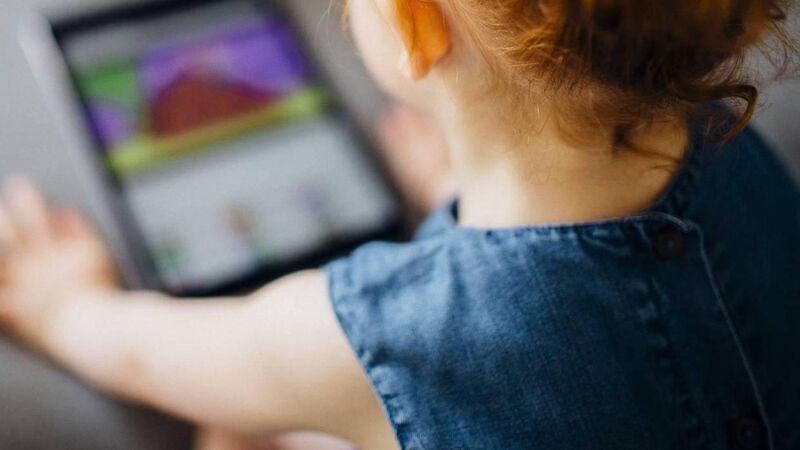Can’t you see how toxic devices really are? It’s ok to be bored...

Children are spending a growing amount of time on the internet, on social media and online gaming.
As we sat in a restaurant waiting for our meal to arrive, my friend and I idly watched a family with young children arrive at a nearby table. Two of the kids, aged about eight and 10, carried their own tablets in with them. The third, a toddler, was eased into a high-chair and handed another tablet.
“Why are the children on all these screens?” I asked my friend.
“The parents don’t want them to get bored while they’re waiting to be served,” she explained.
“So why not, like, talk to the children?” I asked, a bit nonplussed.
Why not, indeed, my friend said.
I looked over at the table again. Both parents were now staring intently into their phones. All three children were also staring intently into their screens.
Even the toddler was oblivious to everything but the brightly-coloured cartoon characters squeaking on her screen.
God, I thought, what a downer.
I recalled a visit to a food-market while on an assignment in Nepal years ago. The stall-holders were selling and chatting to their customers while their young children squatted patiently on their heels nearby, looking around, taking everything in, murmuring to one another and occasionally being called into service by their parents.
They were not bored. They were being.
“Why are parents so terrified of children becoming bored?” I asked my friend.
They’re afraid they’d throw tantrums, she answered.
“A ten-year-old throwing tantrums?” I asked.
“Oh yes,” my friend said. “Believe me, I’ve seen it.”
I thought about that for a second.
“But why?” I asked.
“Because they’re bored,” she said patiently.
So, I asked, were children not learning how to behave themselves or entertain themselves by interacting with each other or their parents or by people-watching or by asking those interminable questions that children used to ask about in the time before screens or, by reading a book or colouring a picture?
I remembered when restaurants used to give small children colouring pages and crayons.
But now, parents were so clearly scared of what their children might do if they became bored, that they just gave each child a screen?
“ Basically,” my friend said.
“But” I said, as our food arrived, “we all need to be bored sometimes.”
The waitress served us and then moved to the family table. Nobody looked up. The waitress stood there and coughed a few times. The mother finally looked up and asked the children what they wanted.
Mostly it seemed, they didn’t want this and they didn’t want that. None of the beautiful, expensive, skilfully prepared food on offer seemed to be of interest. They were simply irritated by having to come off their devices. The toddler screamed in outrage at being distracted from hers.
In the end, the mother ordered for everybody and silence resumed at that table of five living, breathing human beings.
“Boredom teaches us things,” I commented.
“For example, how to entertain ourselves. Or, even, how to behave ourselves. How to make small talk.”
Oh, God, my friend said.
“But it’s toxic,” I pleaded. “Look at them. Can’t you see how toxic these devices are?”
Earlier this month, a study showed that a quarter of primary schoolchildren and nearly 40% of children between the ages of 12 and 14 have been bullied online.
The report, by CyberSafeKids, was, appropriately enough, called Left To Their Own Devices and it highlighted the growing amount of time children are spending alone on the internet, social media and online gaming.
A quarter of eight to 12-year-olds and nearly 40% of younger children have been upset by material they viewed online, yet they kept quiet about it. Maybe because, in some families, there isn’t a habit of talking much to each other?
Teachers, I said to my friend, will tell you that young children are now entering Junior Infants class not even knowing how to turn a page – all they can do is swipe right.
They will tell you about primary school pupils being tired in the mornings because they’re staying awake so late playing games on their devices - more than 80% of children are now allowed on their devices in the privacy of their own bedrooms.
They’ll tell you how the number of children who read books for pleasure is falling through the floor.
They will tell you, as one school principal commented, that children are losing their childhood due to constant exposure to online material. That they are addicted to devices which, ironically expose them to bullying, isolation, anxiety and loneliness.
It’s even affecting their ability to listen to a story being read aloud from a book.
It’s affecting their ability to entertain themselves, to empathise with others, which, by the way, is something that reading for pleasure really helps to build, to make eye contact, to have any interest in learning about the normal wider world, all of which reading for pleasure helps to nurture.
But the sole advantage to this massive cascade of negative effects is that children don’t get bored.
One in five children told the researchers that there were no rules at home about internet usage and 83% said they can use devices in their bedrooms. Nearly 75% of children now own a smartphone by the age of 12.
And this is all because their parents are afraid of them getting bored?
Are we altogether losing the run of things? Oh yes, I think we’ve lost it.







 App?
App?




